Text
When a character doesn’t realize they’ve been, like, shot or whatever and they hand brushes against their side and comes away wet with blood, and they’re just staring at it like wtf is this and then their knees just totally give out on them and they sink down, maybe gasping a little as the reality finally hits them. That’s good stuff.
314K notes
·
View notes
Text
Writing Tip June 4th
A list of body language phrases.
I’ve included a very comprehensive list, organized by the type of body movement, hand and arm movements, facial expressions etc. In some cases, a phrase fits more than one heading, so it may appear twice. Possible emotions are given after each BL phrase unless the emotion is indicated within the phrase. (They are underlined for emphasis, not due to a hyperlink.)
Note: I’ve included a few body postures and body conditions as they are non-verbal testimony to the character’s physical condition.
Have fun and generate your own ideas.:-)
Eyes, Brows and Forehead
arched a sly brow: sly, haughty
blinked owlishly: just waking, focusing, needs glasses
brows bumped together in a scowl: worried, disapproving, irritated
brows knitted in a frown: worried, disapproval, thoughtful
bug-eyed: surprised, fear, horror
cocky wink and confident smile: over confidence, arrogant, good humor, sexy humor
eyes burned with hatred: besides hatred this might suggest maniacal feelings
eyes flashed: fury, defiance, lust, promise, seduction
eyes rolled skyward: disbelief, distrust, humor
forehead puckered: thoughtful, worried, irritation
frustration crinkled her eyes
gaze dipped to her décolletage: sexual interest, attraction, lust
gimlet-eyed/narrowed eyes: irritation, thoughtful, mean, angry
gleam of deviltry: humor, conniving, cunning
kept eye contact but her gaze became glazed: pretending interest where there is none/bordom
narrowed to crinkled slits: angry, distrust
nystagmic eyes missed nothing (constantly shifting eyes): Shifty
pupils dilated: interested, attraction to opposite sex, fear
raked her with freezing contempt
slammed his eyes shut: stunned, furious, pain
squinted in a furtive manner: fearful, sneaky
stared with cow eyes: surprised, disbelief, hopeful, lovestruck
subtle wink: sexy, humor/sharing a joke, sarcasm
unrelenting stare: distrust, demanding, high interest, unyielding
Place To Place, Stationary Or Posture
ambled away: relaxed, lazy
barged ahead: rude, hurried
battled his way through the melee: desperate, anger, alarm
cruised into the diner: easy-going, feeling dapper, confident
dawdled alongside the road: lazy, deliberate delay for motives, unhurried, relaxed
dragged his blanket in the dirt: sadness/depressed, weary
edged closer to him: sneaky, seeking comfort, seeking protection, seeking an audience
he stood straighter and straightened his tie: sudden interest, sexual attraction
held his crotch and danced a frantic jig: demonstrates physical condition – he has to pee
hips rolled and undulated: sexy walk, exaggerating for sex appeal
hovered over them with malice/like a threatening storm: here it’s malice, but one may hover for many reasons.
hunched over to look shorter: appear inconspicuous, ashamed of actions, ashamed of height
leaped into action feet hammering the marbled floor: eager, fear, joyous
long-legged strides: hurried, impatient
lumbered across: heavy steps of a big man in a hurry
minced her way up to him: timid, sneaky, insecure, dainty or pretense at dainty
paced/prowled the halls: worried, worried impatience, impatient, diligently seeking pivoted on his heel and took off: mistaken and changes direction, following orders, hurried, abrupt change of mind, angry retreat
plodded down the road: unhurried, burdened, reluctant
practiced sensual stroll: sexy, showing off
rammed her bare foot into her jeans: angry, rushed
rocked back and forth on his heels: thoughtful, impatiently waiting
sagged against the wall: exhausted, disappointment
sallied forth: confident, determined
sashayed her cute little fanny: confident, determined, angered and determined
shrank into the angry crowd: fear, insecure, seeking to elude
sketched a brief bow and assumed a regal pose: confident, mocking, snooty, arrogant skidded to an abrupt halt: change of heart, fear, surprise, shock
skulked on the edges of the crowd: sneaky, ashamed, timid
slithered through the door: sneaky, evil, bad intentions
stormed toward her, pulling up short when: anger with a sudden surprise
swaggered into the class room: over confident, proud, arrogant, conceited
tall erect posture: confidence, military bearing
toe tapped a staccato rhythm: impatience, irritation
tottered/staggered unsteadily then keeled over: drunk, drugged, aged, ill
waltzed across the floor: happy, blissful, exuberant, conceited, arrogant
Head Movement
cocked his head: curiosity, smart-alecky, wondering, thoughtful
cocked his head left and rolled his eyes to right corner of the ceiling: introspection
droop of his head: depressed, downcast, hiding true feelings
nodded vigorously: eager
tilted her head to one side while listening: extreme interest, possibly sexual interest
Mouth And Jaw
a lackluster smile: feigning cheerfulness
cigarette hung immobile in mouth: shock, lazy, uncaring, relaxed casualness
clinched his jaw at the sight: angered, worried, surprised
curled her lips with icy contempt
expelled her breath in a whose: relief, disappointment
gagged at the smell: disgust, distaste
gapped mouth stare: surprised, shock, disbelief
gritted his teeth: anger, irritation, holding back opinion
inhaled a sharp breath: surprise, shock, fear, horror
licked her lips: nervous, sexual attraction
lips primed: affronted, upset, insulted
lips pursed for a juicy kiss
lips pursed like she’d been chewing a lemon rind: dislike, angry, irritated, sarcasm
lips screwed into: irritation, anger, grimace, scorn
lips set in a grim line: sorrow, worried, fear of the worst
pursed her lips: perturbed, waiting for a kiss
scarfed down the last biscuit: physical hunger, greed
slack-mouthed: total shock, disbelief
slow and sexy smile: attraction, seductive, coy
smacked his lips: anticipation
smile congealed then melted into horror
smile dangled on the corner of his lips: cocky, sexy
smirked and tossed her hair over her shoulder: conceit, sarcasm, over confident
sneered and flicked lint off his suit: sarcasm, conceit
spewed water and spit: shock
stuck out her tongue: humor, sarcasm, teasing, childish
toothy smile: eagerness, hopeful
wary smile surfaced on her lips
Nose
nose wrinkled in distaste/at the aroma
nostrils flared: anger, sexual attraction
nose in the air: snooty, haughty
Face in General
crimson with fury
handed it over shame-faced
jutted his chin: confident, anger, forceful
managed a deadpan expression: expressionless
muscles in her face tightened: unsmiling, concealing emotions, anger, worried
rested his chin in his palm and looked thoughtful
rubbed a hand over his dark stubble: thoughtful, ashamed of his appearance
screwed up her face: anger, smiling, ready to cry, could almost be any emotion
sneered and flicked lint off his suit: conceit, derision, scorn
Arm and Hand
a vicious yank
arm curled around her waist, tugging her next to him: possessive, pride, protective
bit her lip and glanced away: shy, ashamed, insecure
brandished his fist: anger, threatening, ready to fight, confident, show of pride
clamped his fingers into tender flesh: anger, protective, wants to inflict pain
clenched his dirty little fists: stubborn, angry
clapped her hands on her hips, arms crooked like sugar bowel handles: anger, demanding, disbelief
constantly twirled her hair and tucked it behind her ear: attracted to the opposite sex, shy crossed his arms over his chest: waiting, impatient, putting a barrier
crushed the paper in his fist: anger, surrender, discard
dived into the food: hunger, eager, greedy
doffed his hat: polite gesture, mocking, teasing
doodled on the phone pad and tapped the air with her foot: bored, inattention, introspection
drummed her fingers on the desk: impatient, frustrated, bored
fanned her heated face with her hands: physically hot, embarrassed, indicating attraction
fiddled with his keys: nervous, bored
firm, palm to palm hand shake: confident, honest
flipped him the bird: sarcastic discard
forked his fingers through his hair for the third time: disquiet/consternation, worry, thoughtful
handed it over shame-faced: guilt, shame
held his crotch and danced a frantic jig: physical need to relieve himself
limp hand shake: lack of confidence, lack of enthusiasm
propped his elbow on his knee: relaxed, thoughtful
punched her pillow: restless, can’t sleep, angry
rested his chin in his palm: thoughful, worried
scratched his hairy belly and yawned: indolent, bored, lazy, relaxed, just waking
shoulders lifted in a shrug: doubtful, careless discard
slapped his face in front of God and country: enraged, affronted/insulted
snapped a sharp salute: respect, sarcastic gesture meaning the opposite of respect
snapped his fingers, expecting service: arrogant, lack of respect, self-centered
sneered and flicked lint off his suit
spread her arms wide: welcoming, joy, love
stabbed at the food: anger, hunger, determined
stood straighter and smoothed his tie: sudden interest, possible sexual interest
stuffed his hands in his pockets: self-conscious, throwing up a barrier
sweaty handshake: nervous, fearful
touched his arm several times while explaining: sign of attraction, flattery, possessive
wide sweep of his arms: welcoming, all inclusive gesture, horror
Sitting or Rising
collapsed in a stupor: exhausted, drunk, drugged, disbelief
enthroned himself at the desk: conceit, pronouncing or taking ownership
exploded out of the chair: shock, eager, anger, supreme joy
roosted on the porch rail like a cock on a hen house roof: claiming ownership, conceit, content
sat, squaring an ankle over one knee: relaxed and open
slouched/wilted in a chair and paid languid attention to: drowsy, lazy, depressed, disinterest, sad, totally relaxed, disrespectful
squirmed in his chair: ill at ease, nervous, needs the bathroom
Recline
flung himself into the bed: sad, depressed, exhausted, happy
prostrated himself: surrender, desperate, miserable, powerless, obsequious, fawning, flattering
punched her pillow: can’t sleep, anger, frustrated
threw himself on the floor kicking and screaming: tantrum
Entire body and General
body stiffened at the remark: offended, anger, alerted
body swayed to music: dreamy, fond memories, enjoys the music
bounced in the car seat, pointing: excitement, fear, eager
cowered behind his brother: fear, shyness, coward, desperate
curled into a ball: sorrow, fear, sleepy, defensive
heart galloping: anxiety, joy, eager
held his crotch and danced a frantic jig
humped over his cane, each step shaking and careful: pain, aged
inhaled a deep breath and blew out slowly: buying time to find words/thoughtful, reconciled
quick and jerky like rusty cogs on a wheel: unsure of actions, self-conscious, tense, edgy
rocked back and forth on his heels: impatient, cocky, gleeful
manhandled the woman into a corner: bully, anger
slumped shoulders: defeat, depressed, sad, surrender
stiff-backed: priggish, haughty, affronted
stood straighter and straightened his tie: sexual interest, wants to make an impression
stooped and bent: aged, arthritic, in pain
stretched extravagantly and yawned: tired, bored, unconcerned
sweating uncontrollably: nervous, fear, guilt
tall erect posture: confidence, military bearing
was panting now at: afraid, exhausted, out of breath, sexual excitement
-Sharla Rae
73K notes
·
View notes
Text
thinking abt transgender embodiment in a post-collapse scenario
217 notes
·
View notes
Photo

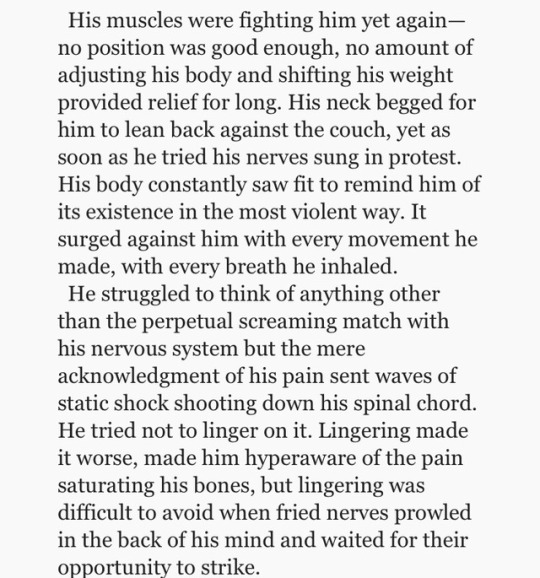
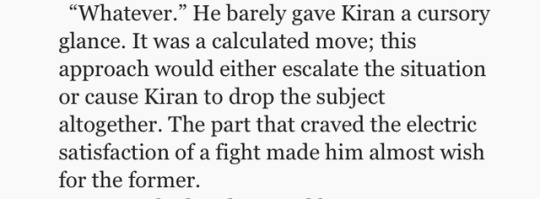


dumping a collection of screens of character studies done about My Boy lmao mostly late night drabbles about his chronic pain bc that’s when mine acts up the most and it’s cathartic to channel that into a creative outlet ignore grammar/formatting mistakes lmao these are unedited and p much just me writing as much as i can before losing motivation and i’m lazy about fixing them up
0 notes
Photo
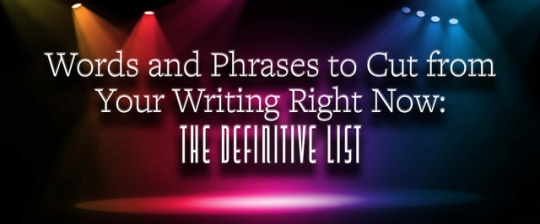
So, so many works I’ve read could be vastly improved with tightening and shaving of superfluous words. Wordiness is an easy stumbling block, as we’re used to how we talk. We’re used to how others (long ago) wrote. But times change, my friend, and so do expectations of the writer. We don’t get paid by the word in fiction. So show your smarts and say as much as you can with as much power as you can in as few words as possible.
Here are a few things you can cut without reserve to help shorten your story right now. And as you catch yourself using these words in your next draft, hit that backspace before you finish the sentence! It’s okay if you already have. You can go delete them now. No one will ever know.
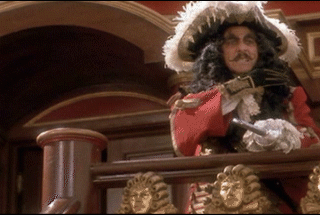
Moment/Second/Minute
It’s so tempting. I am guilty of using this word like fertilizer in my first drafts. But most of the time, these words aren’t needed at all. They add nothing.
He sat down for a moment, sipping his coffee.
vs.
He sat down and sipped at his coffee.
But he only did it for a moment, you say!
He sat down for a moment, sipping his coffee. When the door opened a second later, he shot to his feet.
vs.
He sat down and sipped his coffee. The door opened, and before he could swallow his first sip, he shot to his feet.
I know, this is about making your writing more concise and my “right” example has more words than the first example. But what’s the difference? The words used in the second sentence are more tangible. They give a visual that “a second later” and “for a moment” don’t. And you could leave that part out, of course, if you’re really going for trimming word count. It doesn’t paint quite the same image, but “The door opened and he shot to his feet.” is a perfectly good sentence.
Suddenly/All of a sudden
You’ve heard this one, before, surely. These words are used…when? When you’re trying to portray suddenness. Surprise, perhaps. So why are you adding in extra words to slow down the pace?
She flipped on the TV and reclined in her chair. All of sudden, the TV flashed a bright light and the power went out.
vs.
She flipped on the TV and reclined in her chair.
The TV flashed once before the lights went dark. The power was out.
That sense of immediacy is felt when stuff just happens. So let it happen. If it’s rhythm you’re worried about, then find more useful words to create the rhythm. Notice that I didn’t just cut “All of a sudden” out of the sentence and leave it. I reworded it a bit to make it stronger.
Finally
It can be a useful word, but more often than not, it’s just taking up space.
Really/Very
Just…delete them.
To alter a Mark Twain quote:
“Substitute ’[fucking]’ every time you’re inclined to write ‘very;’ your editor will delete it and the writing will be just as it should be.”
But seriously, if you’re saying, “She was breathing very hard.” You could just cut the “very” and say, “She was breathing hard.” Or, even better, “She was panting.” Or, EVEN BETTER: “She panted.”
Himself/herself/myself/themselves
Reflexive nouns have a specific purpose, though they can still often be avoided. They fall into the category of “use only when it’s confusing otherwise.”
Correct:
He looked at himself in the mirror.
Better:
He looked in the mirror.
Incorrect:
She gave them to Andrew and myself before leaving.
Correct:
She gave them to Andrew and me before leaving.
Technically correct I guess:
I haven’t eaten lunch myself. (Intensive pronoun; aka waste of words)
Better:
I haven’t eaten lunch.
Intensive pronouns add emphasis, but that emphasis is negligible and often negated by the power of tightening your narrative.
That
You can likely cut 60% of your “that"s and your story will be unaffected. Sometimes, you do need to add a “that” here and there for clarification, but not always. And sometimes it’s just plain incorrect.
The jacket was the coolest one that he’d ever owned.
vs.
The jacket was the coolest one he’d ever owned.
In other cases, you might do well to substitute “that” with “which.” Though, if you’re doing this, make sure you do it properly. That change can often alter the meaning of your sentence. That can be for the better, though.
The vandalism that read “Bad Wolf” made Rose nervous.
vs.
The vandalism, which read “Bad Wolf,” made Rose nervous.
Do you see the difference? In the first sentence, the words are what make Rose nervous. In the second, the vandalism itself makes Rose nervous, and it happens to say “Bad Wolf.” In this case, if you’ve watched Doctor Who, then you know the first example is the correct one.
So when you’re sharing details using “that” or “which,” contemplate how important they are to meaning of the sentence to determine which type of clause you need to use.
Then
Or worse, “And then.”
It makes your writing sound a bit juvenile. Either cut it entirely, or substitute “and.”
She jumped into the pool, then hit her head on the bottom.
vs.
She jumped into the pool and hit her head on the bottom.
And then, after all that time, she fell asleep.
vs.
After all that time, she fell asleep.
Even
Sometime “even” can help emphasize a situation or behavior, but when it’s used in narrative improperly, it sounds childish and silly.
He couldn’t even breathe.
vs.
He couldn’t breathe.
Even with the new hair gel, his hair was terrible.
(This one is fine, though you could still cut that “even” if you really wanted to…)
Just
Just…Delete it.
Breathe/breath/exhale/inhale/sigh/nod/shrug
Another one I’m so guilty of. In my first drafts, I tend to talk about how a character is breathing, or when they’re sighing like nobody’s business. I know a lot of writers who are guilty of this, too. It’s a great tool to use scarcely. In intense moments, you can let your character take a final deep breath to calm themselves. When a character almost drowns, those first few sweet breaths are important. But you readers know that people breath all the time. And just because you need a beat in your dialogue doesn’t mean you need to remind your reader that the character is still breathing or moving.
Rather/quite/somewhat
She was rather tall. She was tall. He was quite idiotic. He was idiotic. They were somewhat snazzy. They were snazzy. Why do you need those words? Kill ‘em.
Start/begin
This is a great example of fluff.
She started to run toward the shop.
vs.
She ran toward the shop.
He began scolding them for their performance.
vs.
He scolded them for their performance.
There are obviously uses for this word, like anything. He started the car. Begin your tests! But when you’re using it to slow the action and the pace of your narrative, then consider heavily if you need it. You probably don’t.
In order to/in an attempt to
Phrases that add unneeded complications, cumbersome wording…kill ‘em!
She bit down in an attempt to stop herself from screaming.
vs.
She bit down to stop herself from screaming.
Was able to
He was able to call.
vs.
He could call. OR He called.
This is one that isn’t inherently bad, but it can easily be overused and cutting it will help simplify your narrative.
Due to
Ugh. Are you trying to sound proper and stuffy? Because that’s a reason, I guess, to use this phrase…and yet it sounds like doodoo. (Yes. I’m an adult.) Rephrase. Use “Because of” or just avoid the need altogether.
We stopped due to traffic.
vs.
We stopped because of traffic.
OR (Strength of narrative!)
We stopped mid-highway. The parked cars went on beyond the curve of the road, out of sight.
Visibly/obviously/apparently/audibly
These are a sign of telling in your narrative when you should probably be showing.
She was visibly shaking. –> She shivered, hugging her upper arms.
He was obviously tired. –> He yawned and tripped on his own feet as he crossed the room.
They were apparently angry. –> They stomped and shouted, demanding attention.
She screamed audibly. (Really?) –> She screamed.
Don’t tell your readers what emotion a character is feeling. Instead, give a few clues that they can see/hear/feel the emotion too.
While
This word has lots of legitimate uses. However, if you’re using it poorly, then your narrative reads like an Early Reader’s book, and you (unless that’s what you’re writing) probably don’t want that.
“Get it together,” he said while flipping them off.
vs.
“Get it together,” he said, flipping them off.
Turned
One of the classics. So overused, my friends. It’s needed on occasion, but not nearly as often as we use it. Just cut it out.
They turned toward her as they spoke.
vs.
They gave her their full attention as they spoke. OR They looked into her eyes. OR (Nothing. Readers don’t have to be updated on every little movement.)
Saw/looked/regarded
UGH. Regarded:Looked::Mentioned:Said
And, like “said,” many, many instances of these words can be nixed.
She saw them run for the hills.
vs.
They ran for the hills.
This can be tricky, I know, when you’re writing in limited-third or first POV. It’s tempting to put every action directly through your POV character’s filter. But resist that temptation! There are times when it’s appropriate, occasionally, but it can be overdone so easily.
I looked at her and said, “Please.”
vs.
I said,“ Please.” OR. I took her hand. “Please.”
This example sides with the breathing and the turning. It’s often an unneeded update on the tiny movements of the characters. And, again, sometimes you need that beat or that little detail in an intense moment, but not often.
Said/replied/stated/spoke/mentioned/asked/commented/yelled/cried/shouted
I’m not here to tell you to cut all your dialogue tags (please don’t). I’m also going to the last person who insists you get rid of “said.” In fact, I’m in the “said is invisible” party of writing nerds and I think, if you’re going to use a standard tag, it should be “said” 90% of the time.
But aside from that, using as few dialogue tags as possible is a good thing. I’ll do a full post on this soon, but for now, be aware of how often you rely on these words in your dialogue and do your best not to overuse them. Use surrounding action and context to take some of the reliance off of these words.
To-Be in all its conjugated forms
If you’re using any of this list:
am, is, are, was, were, be, being, had been
Then check yo'self. Some tenses call for an auxiliary verb. Some types of sentence do, too, not doubt about it. But many don’t, and cutting to-be verbs when you can will help tighten your writing.
We were going to the store.
vs.
We went to the store.
Sounds were echoing through the chamber.
vs.
Sounds echoed through the chamber.
To-be verbs can also be an indicator of passive voice, though they aren’t always.
He was hit by the ball.
vs.
The ball hit him.
Last but not least, check all of your adverbs.
Chances are, if you’re using an adverb, you could be using a single strong verb instead and giving each sentence more punch.
He ran quickly. –> He sprinted.
I hit him hard. –> I socked him.
She spoke quietly. –> She whispered.
They ran into each other fast. –> They crashed.
So what am I supposed to do about this?
Take it to heart. Try not to let these words take over your brain as you write. Once your manuscript is finished, try this method:
Use Find and Replace. Replace any and all of the aforementioned words in ALL-CAPS. Now, if you’ve paid attention to my advice in using emphasis, then those all-caps will really stick out as you’re reading over your work and you can decide at each instance whether your usage is appropriate, or if it needs to be rewritten. As I did to this very old draft of mine from my first NaNoWriMo (in which I used every single word on this list, I’m sure).

When I used this method with my most recent WIP, I was able to cut my word count from 105k to 93k without cutting any content whatsoever. It takes a lot of work and it’s pretty tedious but the results are amazing!

It wouldn’t be the English language without exceptions, would it?
Now, there is actually an important time for intentionally using any or all of the words on this list. You know when that is?
When it fits the character’s voice. - More on this in my next post!
24K notes
·
View notes
Photo

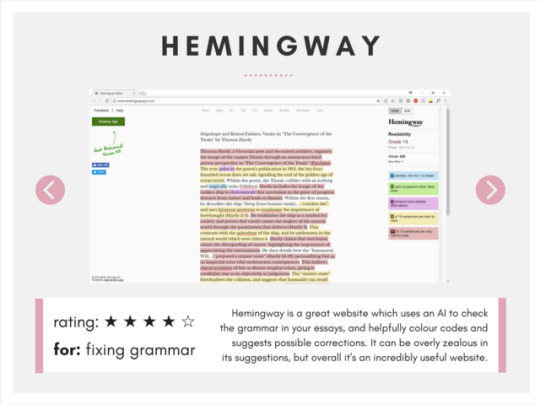

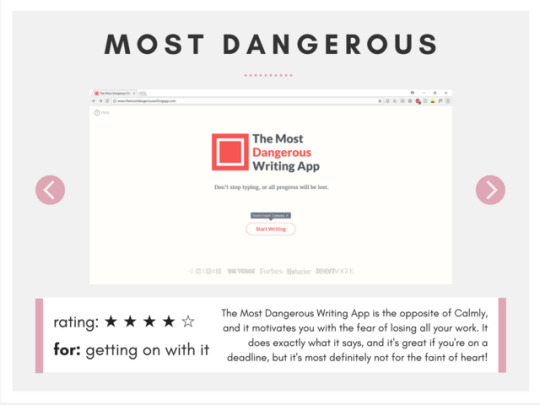
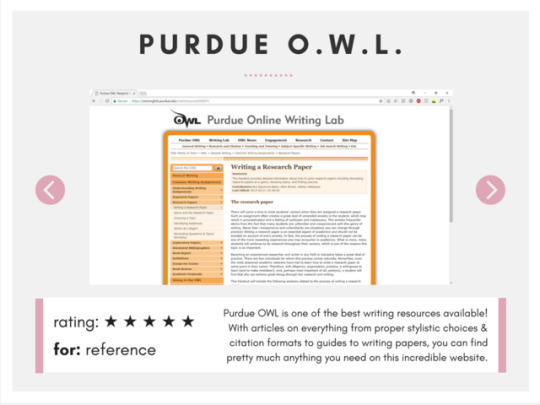

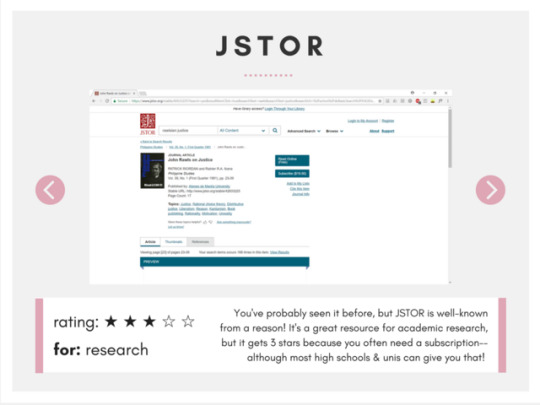

Here’s some weapons for your essay writing arsenal!
Hemingway Editor
Calmly Writer
The Most Dangerous Writing App
Purdue O.W.L.
One Look Thesaurus
JSTOR
Google Scholar
Reply with your favourite or other great websites I didn’t include!
71K notes
·
View notes
Note
What's a good number of main characters to have? Currently I have 6, and I'm thinking of adding a couple more in. The pov switches between them but for the most part it's on my mc. Just wondering if you have any tips for writing lots of characters?
There’s no set number; it all depends on story context and story needs.
There are a few guidelines though:
Only have as many characters as your plot needs.
I’m a little worried about your “thinking of adding a couple more in”. Characters aren’t added for fun or because you feel like it– they need a strong, plot-based reason to exist. This is especially true for main characters because there will reach a point (different for every story and writer skill level) where characters start clogging up the scenes or are forced to just “come and go” because of the sheer number– often leading to them losing “main character” status.
A story only has so much room for balance, and a large high-focus cast (main characters are high-focus) can start taking the story in directions that weaken the overall cohesiveness. Remember that you still have a protagonist, and those other main characters should exist in relation to the plot which is in relation to the protagonist’s goal. The plot dictates how many characters you should have.
Consolidation is generally better.
When you need a new part to a story, first reason if any existing characters can fulfill that role. Some stories really do need a lot of characters, but that setup means that the reader won’t get to know anyone (aside from the protagonist) that well and that affects reader care about characters. It’s harder to manage a lot of characters than newer writers expect, especially because they’re often unable to see things from the reader’s very limited perspective.
The reader only knows what you write in the story– not what you have in your head. You may have a really good character idea, but with any large cast it’s very rare for all of the ideas you have to be explored, which can lead to a reader-writer dissociation over who a character is (and how interesting that character is!). Your plot dictates how much of a character is seen, and diverting from the plot (like writing a subplot) just to show something about a character isn’t the best storytelling. It’s better to weave all character stuff into the plot itself, which gets tricky when you’re dealing with a large cast where the plot events have to be important enough to 6+ main people.
Consolidation sometimes requires story tweaks.
When stories evolve and grow as you come up with ideas, sometimes the old ideas don’t fit as well as they used to. It’s easy to try and hold onto them because they were part of the original idea, but that can lead to a disjointed story with too much pandering to the outdated character roles.
Just like you have to evaluate plot events to make sure they work together, the same applies to all aspects of character. If a plot idea changes, that changes something about a character, and in some cases it can weaken their reason for existence in the story. A strong storyteller understands the ripple effects of every choice they make and how sometimes it means that characters need to be merged, taken out altogether, or bumped down from main character status.
Whats your word count and novel count?
Longer stories mean there’s likely a better chance that you can work with a lot of main characters. Series are especially prone to lots of characters, but for a single novel in the average 60-90k word area there won’t be as much room to explore everyone in true detail that main characters deserve.
What’s the story scope?
This is related to consolation, but touches more on story feeling. Sometimes it is possible to consolidate roles, but that other character helps the reader learn about a specific part of the world that wouldn’t otherwise get known. Assuming that part of the world is plot-relevant, then it can sometimes still make sense to keep the two characters as two characters– however you need to evaluate if they both really deserve to be called “main characters”.
You don’t always have to get rid of a main character completely; you just sometimes have to downgrade them to better balance the story.
It’s all about the plot.
That’s been mentioned a few times before, but it really does matter a lot. Your plot dictates “main character” status because a character is only as complex or as useful as the plot allows.
There’s a good chance that you can keep your 6 characters, but you can’t call them all “main characters”, depending on how their roles and importance measure up to the grand scheme of things. There’s a also a chance that your story would be stronger if you consolidated characters with better focus, or stronger if you cut characters altogether– I can’t tell you which option is best.
Just remember that it all comes down to the plot in the end. The plot dictates what (and who) is necessary and what their importance is.
Other elements of working with lots of characters (all links):
Forming groups and squads
Important characters meeting up later
Tension and being forced to get along (should really be happening with the amount of characters you have. Not everyone should be best friends all the time.)
Writing different POVs
Making sure the plot matters to characters
Your characters should sound distinct, even in 3rd limited.
Good luck with your work!
374 notes
·
View notes
Note
How do I plan out a plot with Multiple Main Characters?
Find your protagonist, because their goal is the driver of the plot and the other main characters fall in line in relation to that goal/plot. You can have multiple main characters, but a single focus character is needed to properly plan a story.
This previous ask answers a good portion of why you need a focus character.
But in short, you still need a single protagonist because all those other main characters only exist in the story in relation to the protag’s story.
Planning the plot is simple: plan the protag’s goal and how they will try and fulfill it– and then the other MCs are just people who play a bigger supporting role than others. Everything tends to fall in line once you find that focal character.
Good luck with your story!
370 notes
·
View notes
Text
Reading Like a Writer
One of the most common pieces of writing advice is to read. Important, but vague. An easy way to analyze novels to become a better writer is to sort what you read into what you don’t like and what you do like. Spend some time thinking–whether alone, in writing, or through conversation–about what makes you like or dislike the writing, and brainstorm ways that the writing could have been improved or changed.
Here are some possible dislikes and likes that you might notice when reading:
What You Don’t Like:
Boring spots that you skim through
Unnecessary scenes that don’t advance the plot
Confusing sub-plots
Chunky dialogue
Characters acting outside their character
Poorly done tropes
Too much telling, not enough showing
Too much showing, not enough telling
Overly flowery prose
Big words for the sake of big words
One-dimensional villains
Lack of distinctive voices
What You Do Like:
Twists on tropes
Scenes where you felt like you were a part of that world
Characters you think about after the book ends
Clever plot twists
Good information reveal
Villains and antagonists that keep you on your toes
Characters that know what they want
Characters forced to make sacrifices
Side-characters that have personalities of their own
Scenes so intense that you find yourself peeking at the next page
Protagonists with flaws that hold them back
Scenes where you felt the emotions conveyed
13K notes
·
View notes
Text
“I’ll have a petite filet mignon, very lean - not so lean that it lacks flavor, but not so fat that it leaves drippings on the plate. And I don’t want it cooked- just lightly seared on either side, pink in the middle; not a true pink, but not a mauve either, something in between- bearing in mind, the slightest error either way, and it’s ruined!”
The waiter furiously scribbled on his notepad before looking up with frantic eyes. “Will that be all for you, sir?”’
“Relax man, I’m just fucking with you. I’ll take a burger.” Den’s grin was genuine and reassuring, relaxing the noticeably relieved waiter.
“Oh, thank god! Okay, what kind of burger did you want?”
He shrugged, “Surpise me. Somethin’ fresh, fun. Hell, gimme somethin’ exotic! I’m white so that should be super easy; the bars set pretty low.”
Across the table, Iko said; “You’re telling me.”
“Whatever, man,” Den scoffed. “Besides, you don’t see color, remember?”
“We are all one color,” Taro chimed in. “The human color.”
“I hate all of you,” Ichiru huffed with a long-suffering sigh.
“I’ll have a petite filet mignon, very lean - not so lean that it lacks flavor, but not so fat that it leaves drippings on the plate. And I don’t want it cooked - just lightly seared on either side, pink in the middle; not a true pink, but not a mauve either, something in between - bearing in mind, the slightest error either way, and it’s ruined!!”
— One of your OCs, ordering dinner
79 notes
·
View notes
Photo
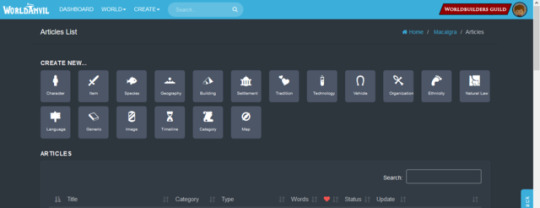
I need to take a moment to rave about my absolute favourite tool for writing right now! WorldAnvil.com! Its a brand new project that is already amazing. and free to use. You can make maps and drop location pins. Create up timelines. Write articles using helpful templates. Engage with a really cool worldbuilding community on their discord server. Follow other worlds. And much more … . It’s being made by a two person team and already its extraordinary.
If you write, RPG or just like to worldbuild, please give WorldAnvil.com a try!

7K notes
·
View notes
Text
The deer stood still in the city street as armed troops in olive coats marched by on either side. It shone from within, like someone had planted a string of light bulbs inside its glass body. Head raised, it seemed to be looking at me for a while, before turning about and running away. The troops didn’t even seem to notice it. I clicked my pen and wrote about the deer in my notepad. Even if I can’t get the editor to publish it, I needed to note it down to make sure it wasn’t a dream.
The soldiers passed round the block, the sound of their marching boots once again drowned out by the sound of wailing cats, crying children and whispering people. This city has never really known what a morning after a battle looks like. Stores had their glass windows broken, and everything inside had disappeared. A lot of buildings were now hollow ruins, or crumbled like biscuits. The people who once lived and worked there were now standing in the streets. They were waiting for food, but a lot of them probably knew they were going to get shot.
But my mind was on the deer. What was a deer doing in the middle of a city, much less a warzone? Why was it shining like that? I considered for a moment that this was some kind of divine intervention. If it was, it must have been directed at me, because I was the only one to see it. I hastened in the direction the deer had disappeared.
I saw it once more, this time behind a formation of troops standing with their bolt-action rifles raised. A dozen men were lined up along the wall. I made a note of their descriptions, and the approximate location. The commander kept barking at them, but the men just wept and pleaded for their lives. I looked to the deer again, and it disappeared to the left. “Wait,” I said under my breath as I ran after it, too fixated on the deer to even ignore the loud cracks of the rifles going off.
The deer entered a park, where a mass of people was gathered, and the military was giving away rations. I pushed past the people and nearly dropped my notepad into a puddle. “Wait,” I said again, this time louder, but nobody heard me, least of all the deer. It exited through the other end of the park, and I followed it out, too.
It stopped before a large heap of corpses. I adjusted my glasses to look at the sheer scale of the mountain. Soldiers were standing on top of dead men and women, passing along more corpses to add to the heap. I watched them at it, but the deer climbed the corpses and went all the way to the top of the heap.
“Hey, wait,” I said again, and began clambering up the bodies. I struggled to reach higher and higher, but I couldn’t keep up with the flames.
14 notes
·
View notes
Text
HELLO I JUST FOUND THE BEST FUCKING WEBSITE FOR WORKING ON CHARACTERS AND WORLD BUILDING YEET FUCKERS SEE YOU IN 8 YEARS
194K notes
·
View notes
Text
IN TODAY’S ISSUE:
are you being admitted to a locked hospital? here are some tips!
1. take all your privacy and stuff it into a garbage bag. feed it to a shredder.
2. pre-choose a funeral outfit you like best. it is likely that you will have a handful of dead friends within a year that you bonded with over infected wrists.
3. practice looking away. you will need to do this each time someone is taken down and injected with thorazine into their backside. if it’s going to be you, practice acting like it never happened in front of others. see how many apologies you can fit into your mouth at once, and how many “for what?”’s you can spit back out.
4. bring a good book. you’ll need something inanimate to keep you company. it gets lonely walking the halls at night, asking for a gun in someone else’s voice and not remembering it 30 minutes later. it gets lonely hearing that the voice was yours, 17 years before. bring a good book.
5. stop for a minute and see what it’s like to sleep on the floor. make sure you’re on your best behavior, and you don’t break any rules. otherwise, you could find yourself sleeping on the floor in front of the front desk. better yet, you could be sleeping on the floor of the cushion wall hallway.
6. quickly go outside and put all the warmth and air into a paper cup–jars aren’t allowed, no matter how ideal for this. when you get up to the floor, open up the cup for all the times you are prohibited from feeling the sun on your skin.
263 notes
·
View notes
Note
Hi! So I'm writing a scifi story, and my character (about 30 years old, human male, in good physical health) is captured and held for maybe 6 days before his friends manage to rescue him. The capturers want to make the character's organization see them as strong and powerful by hurting the character (who is kind of a Hero), but they don't wanna kill him yet. Do you have any suggestions for possible tortures, or fo you need more information, I know I described the scenario quite badly
You haven’t describedthe scenario badly but it would be helpful for me to know what the cultures inyour story are based on. Generally the types of torture technique used dependon where (and when) you’re talking about. Different countries have different‘National Styles’ of torture. What’s realistic for one time and place isn’tnecessarily realistic for another.
When I’m makingsuggestions for sci-fis I like to be able to make suggestions based on whatsort of cultures the writer is imagining. So for instance I’ve based questionsabout Klingons for Star Trek fanfics on real Russian practices because (as Iunderstand it) the Klingons were loosely based on Russian culture.
I tend to suggest using‘clean’ (ie non-scarring) tortures in sci fi settings. This is because mostmodern torture is clean. But depending on how you’ve built up your world andhow the culture works that might not be the best way to go.
I’m getting theimpression that your baddies want to humiliate this character and you haven’tgiven an indication of whether you want the character to have any scars orobvious, physical injuries.
Six days is areasonably long period of time and gives you a lot of scope for differenttechniques and methods.
So I think the mosthelpful thing I can do is give a quick little run down of when clean vsscarring techniques are more likely and make some suggestions for both. I’llsay when and where certain techniques were more common so if you have aparticular place in mind for the sci fi cultures you’re working with you’llhopefully be able to draw from at least some of my suggestions.
Rejali makes a prettyconvincing case that the switch entirely to clean tortures in the modern erawas caused by international monitoring and the concerted effort of the humanrights movement to eradicate torture. Thereare other arguments which I discuss briefly in this Masterpost on cleantorture.
The argument is that ifthere is a concerted effort to look for evidence of torture and negativeconsequences of it being proved then torturers change their practices, hidingwhat they’re doing. This means having a general cultural assumption thattorture (or at least some forms of torture) is wrong.
The switch fromwhipping to clean tortures in European militaries came after change in publicopinion. It was no longer seen as acceptable to subject soldiers to‘humiliating’ punishments such as whipping which were also used on criminals.Stress positions, environmental exposure and forced exercise gradually took theplace of whipping.
These culturescontinued to use scarring tortures in other contexts.
Historically somecultures (including many European ones) have used scarring tortures aspunishments for certain forms of crime. The idea was to forever mark thecriminal with evidence of the crime, humiliating them and possibly ostracisingthem from the community as part of their punishment.
Essentially you need tobe aware that scars can illicit sympathy as well as revulsion. They can lead toa public rejection of torture, or at least of visible torture.
If there’s a chance yourtorturers or their organisation could lose credibility for obviously torturingtheir enemies then I’d suggest sticking to clean methods.
If on the other handyou think the people who support the baddies will be encouraged by seeing someone like your character scarred, if they’dsee it as just and as a reasonablepunishment- then I think you should consider scarring techniques.
Homophobia and racism may feed into how likely scarringtorture is. Historically a lot of cultures reserved clean tortures for womenand children not because they were ‘kinder’ but because there were socialpenalties for scarring women and children. Scars reduced their perceived value.
If these bad guys seeyour character as the lowest of the low, as the most horrible form of non-personthey can imagine and other factorsthat would support scarring torture apply then I’d say scarring torture wouldbe almost certain.
Let’s move on to somesuggestions.
Generally torturers usemore than one technique. A typical regime would include 3-5 techniques(excluding things like the conditions of the cell and starvation which are alsotorture). So you should pick multiple techniques, I’d say up to a maximum ofseven.
The torturers willprobably use as many techniques as possible as quickly as possible but over thesix day period the character would not be continuously tortured for the simplereason that he wouldn’t survive. Over longer periods of time torturersgenerally start to lose interest in particular victims, with the most concentratedindividual attacks usually occurring in the initial 2-3 day period. In yourcase I wouldn’t advise showing a noticeable loss of interest but perhapsinclude more periods of rest and recovery between torture sessions after thefirst 2-3 days.
There are a few thingsthat are virtually ubiquitous in modern torture: sleep deprivation, starvationand beatings.
Beatings can bescarring or clean. An open hand on a fleshy area or a rounded soft object willnot generally leave lasting marks or bruises. A closed fist or a harder objectwill bruise. An object with an edge ie a rectangular piece of wood or arectangular shaped whip, may break the skin and scar. Metal objects or objectswith metal studs will be scarring and in some contexts can be lethal.
Most torture victimsare beaten. In fact beating probably constitutes most torture. It isn’t hightech, it isn’t complicated. It is, bluntly, kicking the shit out of someone.
Moving on to morespecific ‘clean’ techniques-
A lot of countries nowuse electricity, America and France in particular have both used electricaltorture for a very long time (the UK is one of the few countries that doesn’tgenerally use electricity). This mostly involves using stun guns, stun batonsand Tasers that are officially issued to the police and military. If electrical‘stun’ weapons are common in your sci fi world then it seems likely they’d beused to torture.
These devices do not leave marks. Which makesprosecuting cases extremely difficult. They’re incredibly painful and they aredesigned to make the victim temporarily lose control of their major muscles.They can kill, both by causing heart attacks and by knocking victimsunconscious. If someone becomes unconscious while standing they aren’t able toprotect their head as they fall, which can result in fatal head injuries.
Stress positions arecommon globally but which positions are used varies widely from country tocountry.
The UK seems to favourpositions that don’t require restraints like ‘walling’ (standing with the armsoutstretched so that the body is leaning forward and the finger tips touch thewall in front, weight does not rest on the arms and a lot of strain is put onthe back of the legs).
In India and Pakistanthe ‘murgha’ position is used. The victim bends forward so that their ears arebetween their knees. They then sometimes have to hold their ears.
In the USA ‘standingcuffs’ seems to be favoured, which is a form of forced standing with thevictim’s hands cuffed above their head.
All of these positions areextremely painful and can kill. The strain basically causes massive musculardamage which causes a build up of proteins in the bloodstream and can lead tokidney failure. 48 hours is the maximum ‘safe’ period someone can be kept in astress position, longer periods risk death. Victims are unable to use theirarms and legs normally immediately afterwards but recover with rest and time.
Falaka is anothercommon one, which is used throughout the Middle East through to Pakistan andinto parts of northern Africa. It’s also used in some European countries,especially those that were once part of the Ottoman Empire.
Falaka is essentiallybeating the soles of the feet. It can be clean, scarring or lethal depending onthe implement used. Today soft rounded objects like hose pipes are used becausethey don’t leave external marks. The historical whips or wooden canes do leavescars, heavier wooden canes can break the bones of the feet and metal objectscan break the bones in the leg as well. Metal rods can be lethal.
Redness and difficultywalking for around 24 hours afterwards would be normal even with clean methods.
Dry choking ornear-drowning tortures are another globally common clean torture. These are basicallya form of suffocation, strangulation or near-drowning. They’re not used in theUK, or China but dry choking is common in India, South Africa and easternEurope (including Russia) and near-drowning is common in the USA and France.
Dry choking ofteninvolves putting some sort of hood over the victim’s head. Plastic bags arecommonly used world wide but certain parts of eastern Europe have used gasmasks in the past. The air valves of the gas masks can be manipulated to cutoff air entirely, suffocating the victim and causing immense pain. The valvesare opened before the victim falls unconscious and the process is thenrepeated. A similar procedure might be possible with a space suit.
Near-drowning can be assimple as holding someone’s head in a bucket. Waterboarding is slightly morecomplicated but not by much. It usually means putting a piece of cloth over thevictim’s mouth and nose and pouring a constant stream of liquid over it,cutting off air. As with dry choking the victim is periodically allowed tobreathe to prevent death.
Any torture that cuts offthe air supply is incredibly risky. There’s very little difference time-wise between‘pain’, ‘unconscious’ and ‘permanent brain damage’ or death. This doesn’t meanthat torturers are ‘skilled’; it means that the procedure is incredibly riskyand may lead to a higher number of victims dying.
Because torturers don’tpublish statistics I can’t say with certainty that victims subjected to chokingor near-drowning tortures are definitely more likely to die.
That’s cleantechniques.
Scarring techniqueshave often varied hugely globally and the further back you go historically theharder it can be to distinguish propaganda and exaggeration from fact. It’s alsoworth keeping in mind that many historical scarring tortures were intended tobe lethal.
I’m going to try andstick to simpler and more widespread scarring tortures as a result.
Burning with hot metalhas been used by a lot of disparate cultures at various times. I’m particularlyaware of use in Japan and Britain historically.
The traditional pincersor tongs that tore flesh as well as burning would probably not be a practicaltorture in a sci fi setting. Open fires and metal tongs would probably not becommon place items and people do not use historical relics to torture.
But metal can be heatedelectrically and I’m sure a lot of high tech equipment might contain heatedmetal parts which could be exposed. Cooking implements, such as an electricalstove or toaster could also be used.
If you don’t want thecharacter to suffer from lasting mobility issues it’s best to avoid making theindividual burns too big (try to stick to a maximum of the size of thecharacter’s palm) and it’s also best to avoid the joints. Scarring on or aroundthe joints can shrink the skin there, reducing mobility. In the case of burningit can also damage nerves and tendons at the joint which are necessary fornormal motion.
It’s also important toavoid the nose, mouth and anus if you want the character to survive. Burns tothe eyes will blind. Burns to the genitals are likely to result in completeloss of sensation and possibly amputation of parts of the genitals.
Communities thatpractice consensual branding report that a burn which encloses an area of skin(ie a circular shape like O) causes death of the encircled skin. This isthought to be due to cutting off the blood supply by damaging capillaries. Sofar as I know it’s not dangerous to the character’s life, but it can result ingreater areas of visible, obvious damage.
If you want to go downthis route I’d suggest looking through ScriptMedic’s tags on burns and burntreatment.
Cutting was anotherglobally common scarring torture. It’s fairly self explanatory and I suspecteven a sci fi setting would still have knives. The same advice for burns scarsapplies here, scars can reduce mobility and it is best to avoid the joints.Attacks to the eyes can blind. Attacks to the nose and mouth are less likely tobe fatal but attacks to the anus will be. The genitals are a relatively commontarget and depending on the depth of the cut would not necessarily result inlong term loss of the genitals (infection is always a possibility).
Removal of teeth andnails was also globally common. This was usually done with pliers, I’m sure asci fi society would have an equivalent common piece of equipment that could beused.
So far as I know teethand nails, once torn out, do not grow back. This can cause difficulty eatingand difficulty with fine motion in the hands. Your society may have technologythat could rectify these problems but it might not.
Now this ask has gotincredibly long. I’m hoping that I’ve provided enough suggestions that you canbuild up something to suit your world.
Remember that it shouldbe practical and simple. If you don’t think your baddies would have easy access topliers don’t use pliers. If you don’t think they’d be able to find cabling orsticks for falaka don’t use falaka. If it requires a lot of effort torturerswill not use it.
Andremember to include the long term effects on your character’s personality andmental health. Recovery is not the absence of symptoms, but learning tolive well with symptoms.
Chose techniques youare comfortable writing about and good luck with your story. :)
Disclaimer
41 notes
·
View notes

